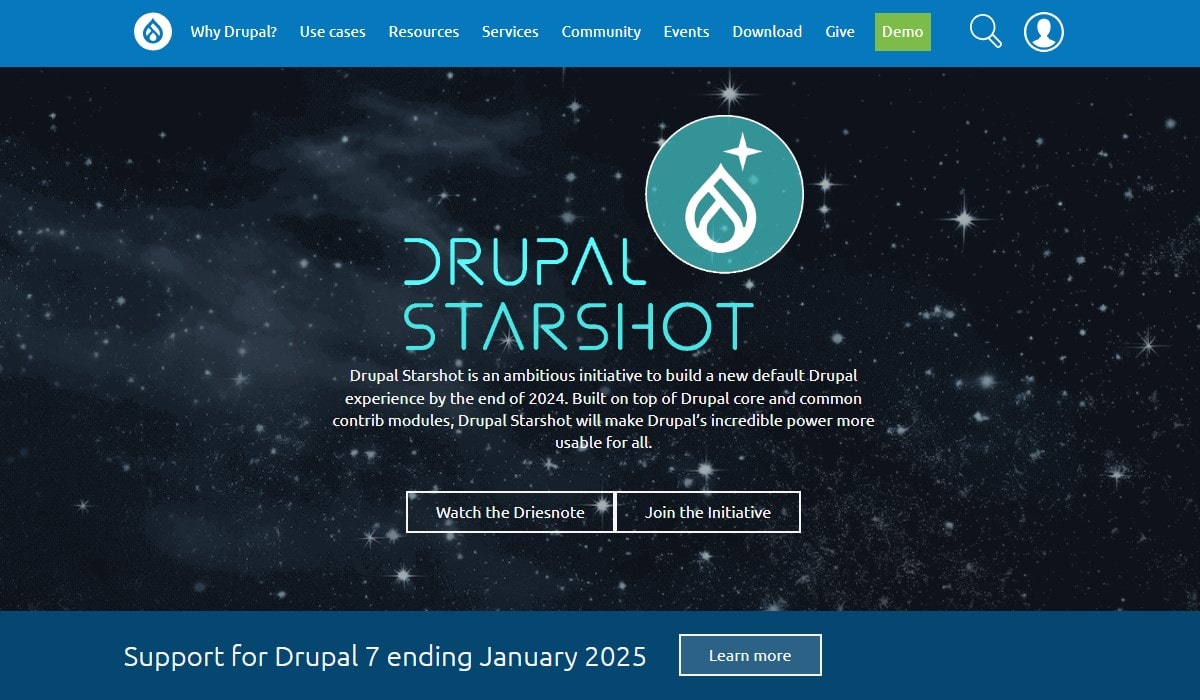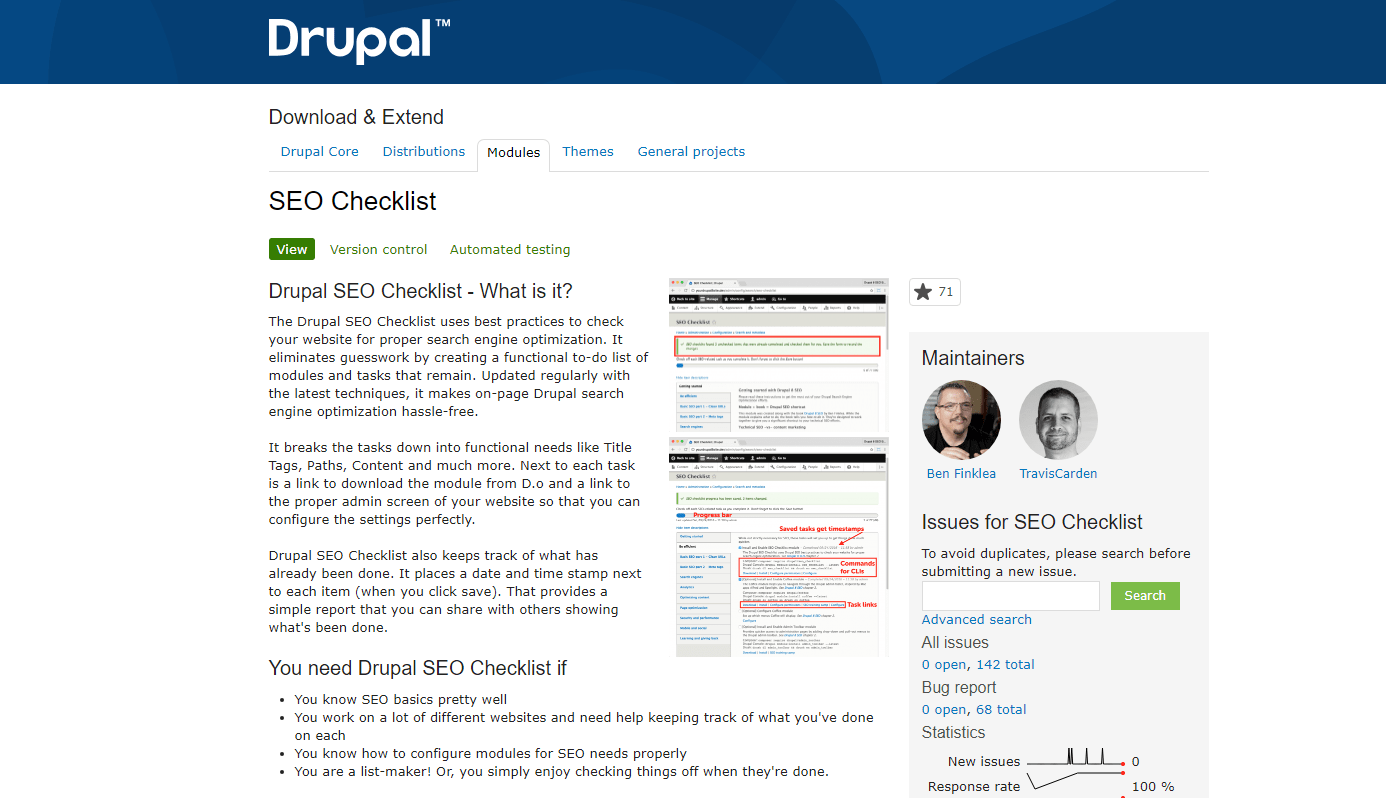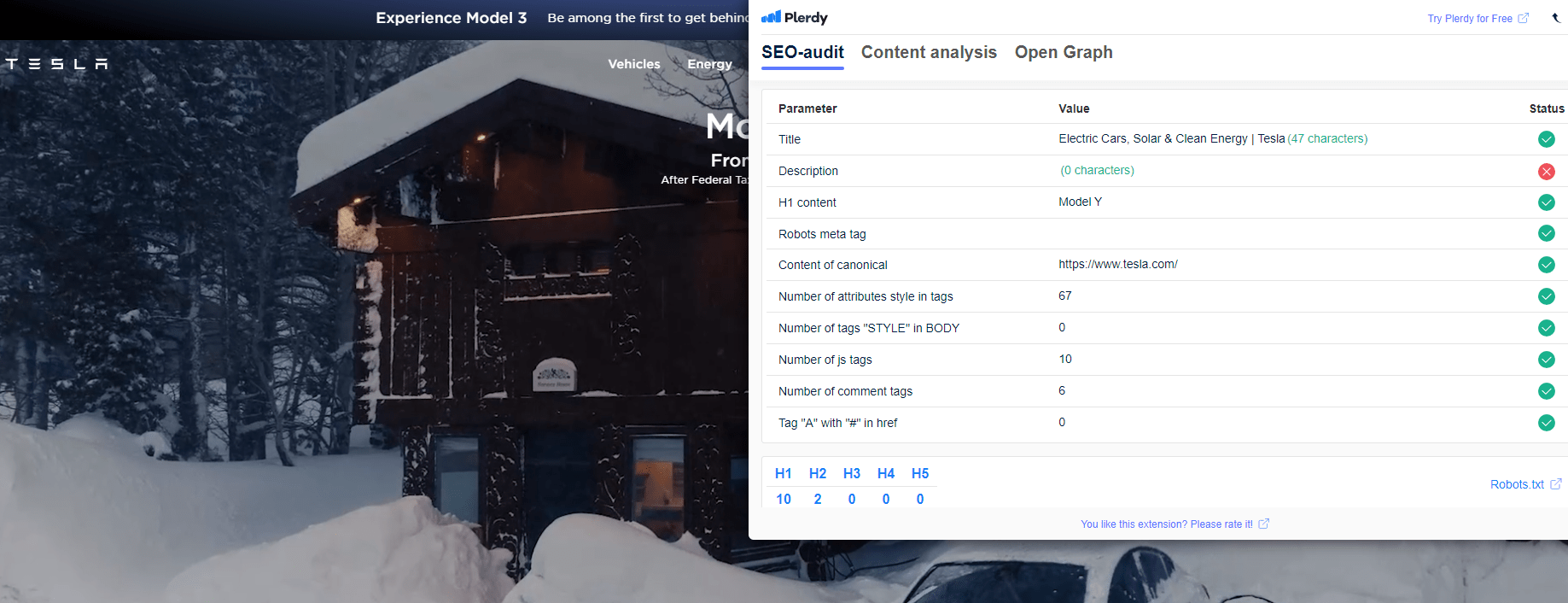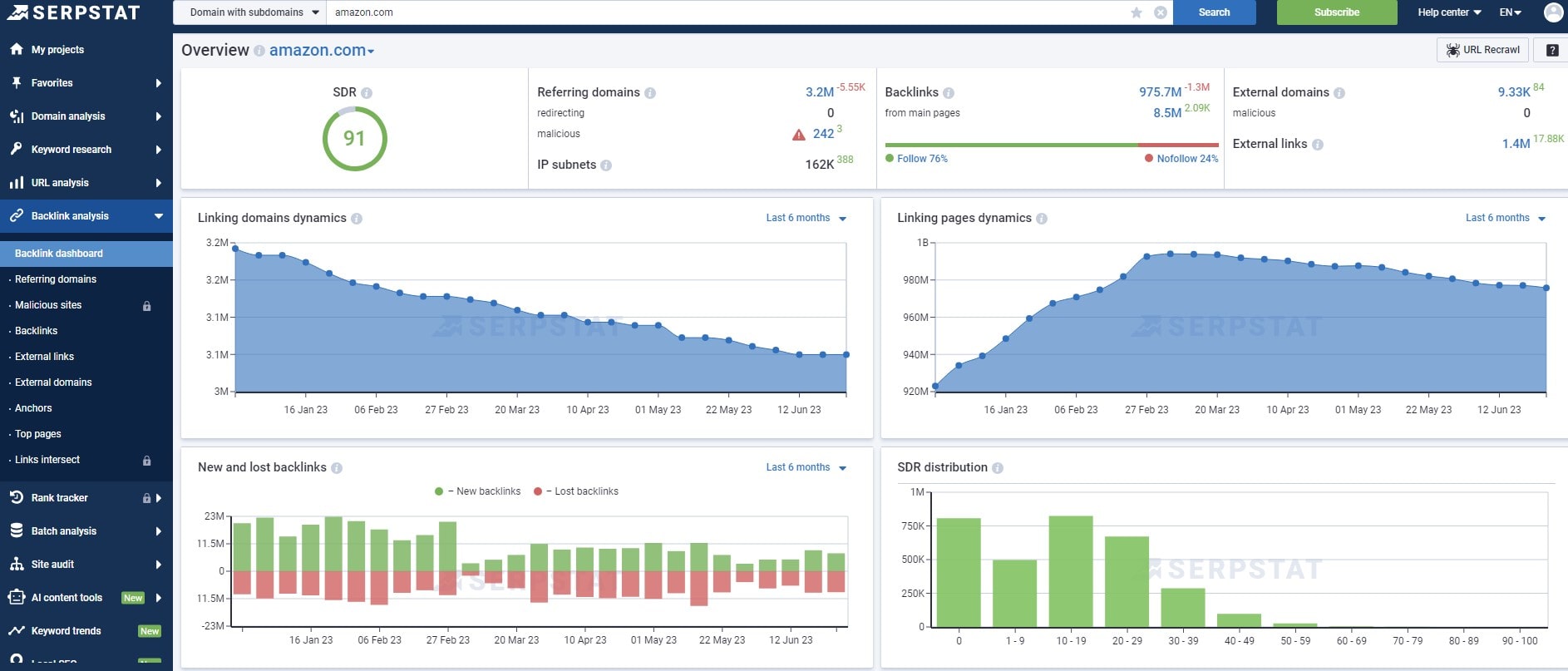Consider Drupal as a superhero. Its SEO is its superpower! But Plerdy provides a dynamic team for conquering the digital world, since even superheroes need a sidekick. With SEO still changing in 2024, websites—especially those run by Drupal—must keep up with the times. Designed to meet the demands of the always evolving online landscape, this book is your complete handbook for learning Drupal SEO. Here we will explore the fundamentals of Drupal SEO to make sure your website both survives and prospers in the cutthroat world of search engines.
Maximizing Drupal SEO: A Comprehensive Guide for 2024
As the digital landscape continues to evolve, mastering SEO on Drupal is more critical than ever for enhancing your website’s visibility and search engine ranking. This guide provides a detailed breakdown of SEO strategies tailored specifically for Drupal users, ranging from fundamental principles to advanced tactics. Whether you are new to SEO or looking to refine your existing knowledge, the following table outlines essential tips and modules to optimize your Drupal site effectively for search engines in 2024.
| Section | Description |
|---|---|
| SEO Fundamentals | Overview of basic SEO concepts and how they apply to Drupal. Includes topics like keyword research, meta tags, and site structure. |
| SEO Modules | Discusses essential Drupal modules for SEO, such as SEO Checklist, Pathauto, and Metatag. Provides installation and configuration tips. |
| Technical SEO | Explains technical SEO aspects specific to Drupal, like XML sitemaps, robots.txt adjustments, and performance optimization (e.g., caching strategies). |
| Content Strategy | Guidance on creating an SEO-friendly content strategy using Drupal. Covers content types, taxonomy, and best practices for content hierarchy. |
| On-Page SEO | Focuses on on-page SEO techniques for Drupal sites, including optimized headings, URLs, and internal linking strategies. |
| Off-Page SEO | Explores off-page SEO elements such as backlink building, social media strategy, and influencer collaborations in the context of enhancing Drupal’s SEO. |
| SEO Trends and Updates | Discusses the latest SEO trends and algorithm updates that impact Drupal websites. Provides advice on staying current and adapting to changes in the SEO landscape. |
Realizing Drupal SEO Fundamentals

Consider Drupal to be the cornerstone of a soaring building. Your SEO requirements would be more the higher you aim. Let’s dissect Drupal SEO fundamentals so your virtual tower soars to great heights.
Define and Explain Drupal SEO
Drupal SEO is boosting the search engine results of your Drupal website. Higher visibility brings more traffic and maybe conversions, hence this is essential. Drupal, in contrast to other platforms, provides special SEO-friendly features such complete module support and tidy URL architectures. When used in the right ways, this combination makes your Drupal website stand out in the digital world. Moz points out that a well-optimized website draws in high-quality traffic, which enhances user experience and increases interaction.
Drupal SEO Fundamentals
Drupal SEO done well depends on a few fundamental ideas. First off, search engines and people need clean URLs since they make your website easier to navigate and content more easily found. Using modules like Pathauto then improves URL optimization by automatically producing search-friendly pathways. material is also king, hence creating pertinent, excellent material is critical. Good usage of keywords and metatags made possible by modules like Metatag should enhance this material. Last but not least, Statista confirms that, given the increasing number of mobile users, mobile optimization cannot be ignored. Making sure your Drupal website is responsive increases both user interaction and search engine ranking.
Knowing and using the special capabilities of Drupal is just as important to mastering SEO as following a checklist. These basic but powerful components set the foundation for the SEO strategy of your website. Remember these ideas as we go more into the subtleties of Drupal SEO to improve the online visibility of your website.
Key Drupal SEO Modules and Trends

Modules in Drupal SEO are like hidden ingredients in a gourmet cuisine; they help your website rank from average to excellent in search engines. Every committed website owner hoping to keep up with SEO trends has to investigate the core Drupal SEO modules.
Key Drupal SEO Modules
The Pathauto module is a mainstay of Drupal SEO, to start. It produces search engine friendly URL aliases automatically, which is essential for SEO as the Search Engine Journal emphasizes. Using this module guarantees that your URLs are search engine and user-friendly.
Metatag is a further important module that lets you customize a wide range of metatags for every page. Search engines need this to understand the content of your page. With titles, descriptions, Open Graph tags, and more, this module gives you total control over how your content appears in social media and search results.
Furthermore necessary is the XML Sitemap module, which produces a sitemap that improves search engine navigation of your website. Google recommends that a sitemap be well-organized since it helps search engines navigate your material.
Maximizing Drupal SEO Modules
Efficient configuration of these modules is as crucial as installation of them. For Pathauto, incorporating keywords into patterns can greatly increase the efficacy of your URLs. Every URL need to be a reflection of the information on the related webpage.
Key search terms should be included, interesting meta titles and descriptions should be written, and Metatag should be used. Finding the best terms for your meta tags is made much easier with tools like SEMrush.
Make sure the XML Sitemap module is configured to update automatically with new content so that a current sitemap is maintained for effective search engine crawling.
Drupal SEO Modules Review
The basis of your Drupal SEO plan is formed by these modules. Regular updates and correct setup can improve search engine ranking and visibility of your website. The path of SEO is never-ending, and these modules are essential resources to guarantee that your website is always search engine optimized. Keep your website SEO friendly by staying up to date on module upgrades and SEO trends.
Technical SEO for Drupal Sites

An engine room is analogous to technical SEO. A Drupal website needs to be well-tuned in every technological area in order to operate smoothly in the huge online ocean. Let’s examine Drupal site technical SEO requirements to make sure your website is not only stable but also ready to take on new challenges.
Improving Site Speed and Performance
Speed of a website is essential to SEO. webpages that load quickly draw visitors and have lower bounce rates—two factors that Google uses to rank webpages. Starting with image optimization will help you to maximise Drupal speed. Huge photos slow down your website; to reduce them without sacrificing quality, use free online services or programs like Adobe Photoshop. Utilize Drupal’s caching capabilities as well to save often accessed material and speed up loads. Google Developers explains how modules like Advanced CSS/JS Aggregation can further speed up your website by reducing CSS and JavaScript files.
Solutions for Mobile Optimization
A mobile-optimized website is a must since, according to Statista, mobile devices account for more than half of all internet traffic worldwide. Responsive design features of Drupal guarantee that your website is mobile-friendly right away. Additionally, you can assess the mobile performance of your website using Google’s Mobile-Friendly Test tool. In addition to adaptable layout, a mobile-optimized website also optimizes menus and graphics and guarantees touch-friendly navigation.
Optimizing URLs and Link Structures
Drupal URLs should be easy to understand and full of keywords, which the Pathauto module makes possible. Search engines can better index the page content and users can better grasp it as a result. Verify the logic and simplicity of your connection structure. Breadcrumb trails improve search engine architecture and facilitate user navigation of your website. Another important component is internal linking, which, as Moz stresses in their internal linking guide, helps with site navigation and also distributes page authority throughout your website.
Internet presence of Drupal sites depends on technical SEO. Search engine success of your website is strongly anchored by performance, mobile optimization, and a good URL and link structure. One never stops learning technical SEO. Track the success of your website, keep up with developments in mobile optimization, and improve your link and URL plans. Your Drupal site is well on its way to SEO brilliance if these technical details are under control.
Optimizing Content Strategy for Drupal SEO

Content strategy is unquestionably powerful in the SEO world, especially for Drupal websites. Creating a content strategy that appeals to search engines and users is essential to succeeding with Drupal SEO. Let’s get started creating a powerful content plan that is Drupal SEO optimized.
Making Drupal Content More SEO-Friendly
The first step in producing Drupal SEO-friendly content is to know your audience and search habits. Discover important terms that fit your specialty with the help of programs like Google’s Keyword Planner. Easily include these keywords into your writing to guarantee it is both educational and of excellent caliber. As its Search Quality Evaluator Guidelines make clear, Google values material that adds value highly.
To enthrall and involve your audience, vary up your Drupal content with text, photos, videos, and infographics. Make sure every piece of content on your Drupal website is original, answering certain audience questions and providing fresh perspectives. Utilising Drupal’s extensive content management tools, effectively manage and arrange your information to make it easily available and well-structured.
Researching keywords and Drupal SEO
A keystone of every Drupal SEO content strategy is keyword research. Utilise SEMrush or Ahrefs’ features to do thorough keyword research and focus on pertinent terms with the highest search traffic. Particularly useful for Drupal SEO, long-tail keywords target certain searches and increase the relevance of your website.
Once you have identified your keywords, use them strategically across the content, in headers, titles, and meta descriptions of your Drupal content. The secret is to optimize for Drupal SEO while producing interesting material for the reader.
Fine-tune your title tags and meta descriptions for SEO with Drupal’s Metatag module. Search engines need to be able to read and navigate every page on your Drupal website, and this module makes that possible. Update your Drupal content often to maintain its relevance and to conform to Google’s preferred updated material.
Maximizing Drupal SEO requires an extensive content plan. This approach includes knowing your audience, researching keywords in-depth, and creating interesting and Drupal-optimized content. Your Drupal website can become very visible online by concentrating on these aspects, which will help to close the gap between satisfying search engine algorithms and giving readers actual value.
On-Page SEO Best Practices

On-page SEO in Drupal like fine-tuning a high-performance race car. The SEO engine on your website is enhanced overall by every component, including the photos and meta tags. Let’s investigate the top techniques to improve the on-page SEO of your Drupal website.
Maximizing Meta Tags and Descriptions
Search engines and people will see your meta tags and descriptions as your first chance to make an impression. Customize these components for every page in Drupal with the Metatag module. Shorten title tags and include important keywords that correspond with the content of the page. The first 50 to 60 characters are shown by Google.
Though not directly affecting rankings, meta descriptions do have an impact on click-through rates. These need to be eye-catching, succinctly summarizing the information on the page, and include a call to action. Aim for 150–160 words so that search results will show the whole description. As Danny Sullivan of Google attests, include pertinent keywords naturally.
Image and Multimedia Search Engine Optimization
While multimedia and images can greatly increase user interaction, they need to be search engine optimized. To assist search engines index image files, their names should be short and full of keywords. As the Web Content Accessibility Guidelines specify, alt text is equally crucial for context and accessibility enhancement.
Although search engines can’t view videos, they can crawl text, so for videos include a transcript or a summary with pertinent keywords. To speed up page loads—a crucial component of Google’s Page Experience update—compress photos and videos. Reduce file size without compromising quality with programs like Adobe Photoshop or internet compressors.
Drupal’s responsive design makes sure your multimedia material scales to fit various screen sizes, improving both SEO and user experience.
All things considered, Drupal on-page SEO is all about painstaking attention to detail. Search engines and visitors view your website much differently if meta tags, descriptions, and multimedia content are optimized. You raise user experience and increase exposure of your website by adhering to these best practices. Recall that in order to keep up with changing search engine algorithms and user preferences, on-page SEO is an ongoing process that needs to be reviewed and updated often.
Drupal SEO: Mastering Off-Page Optimization and Link Building

In the world of digital SEO, especially for Drupal websites, link building and off-page SEO are like to establishing a solid professional network. Effective off-page SEO can greatly increase the exposure of your Drupal website, much as strong relationships can advance a company. To extend the reach of your Drupal website, let’s explore off-page SEO and link-building techniques.
Essential Links to Build for Drupal SEO
The foundation of Drupal off-page SEO is link development. Getting backlinks from reputable websites works as a digital recommendation to improve your Drupal search engine rating. Write excellent material first, which draws backlinks by itself. Contributing to pertinent blogs and include a link to your Drupal website is possible with guest blogging, another successful tactic.
Use methods like broken link building, in which you find and suggest your material to replace broken links on pertinent websites. Such possibilities are found in large part by tools like Ahrefs. Remember, as Moz emphasizes, that for Drupal SEO to be effective, links must be relevant and of higher quality than quantity.
Drupal SEO Social Media Integration
Although social media links are typically ‘nofollow’ and have no effect on SEO, their ability to raise awareness and draw traffic can tangentially strengthen the authority of your Drupal website. Participate fully on social media sites that suit your target market. To increase visitors to your Drupal site, share its content, engage with followers, and take part in conversations.
Working together, influencers can improve your outreach as well. Influencers have the power to increase backlinks and brand recognition by raising the visibility of your content. Depending on your intended demographic, professional content on LinkedIn or visual content on Instagram can work very well to improve the SEO of your Drupal website.
Link building and off-page SEO for Drupal are about growing your digital footprint and developing deep web connections. Invest in getting excellent backlinks and making use of social media to improve the internet visibility of your Drupal website. As a long-term project, this one requires constant work and participation. Still, the advantages are significant and include better search engine ranks, authority, and visibility. Every social connection and every link is an opportunity to increase the online presence of your Drupal website.
Keeping Up with SEO Trends and Updates

Being current in SEO is essential since it moves quickly. An owner of a Drupal website needs to be as aware of SEO developments and trends as a seafarer. Let’s talk on how to stay current with these updates to improve the search rankings of your Drupal website.
SEO is constantly changing since search engine algorithms do. To keep a Drupal site ranking well, you have to be proactive in learning about these changes. Frequent reading of reliable SEO news sites like Moz or Search Engine Journal can give you knowledge of the newest developments and algorithm changes.
Engage in SEO forums and groups; these are veritable gold mines of current knowledge and useful advice. Participating in these forums can also illuminate how other people are adjusting to shifts in SEO tactics.
Take in conferences and webinars devoted to digital marketing and SEO as well. These gatherings give the most recent information and chances for industry professionals to network.
Success of Drupal websites is influenced by developments in SEO. You can make sure that your website maintains up with the competition and establishes new standards in search engine optimization by keeping knowledgeable and flexible. Knowledge really is power in the realm of SEO, and using it well requires staying current.
To sum up
Especially for Drupal sites, SEO is an ongoing process of learning and adaptation, hence it’s important to keep up to date and use these best practices. After navigating the complexity of Drupal SEO with this book, think of it as a springboard for further investigation. Would like further information? Explore other Plerdy blog posts to expand your knowledge of digital marketing. Furthermore keep in mind that Plerdy provides tools designed to improve the performance of your website and help you remain ahead in the always changing SEO race for complete SEO solutions and analytics.
